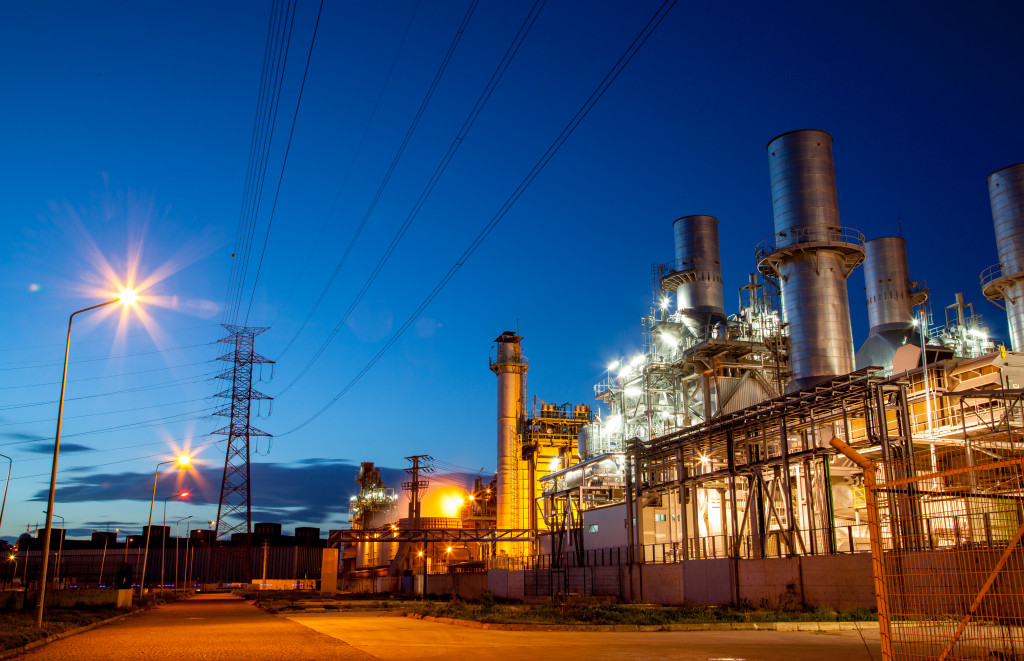- Regular safety training and informed adherence to electrical regulations are paramount to maintaining a safe, efficient workspace and preventing electrical accidents.
- Using high-quality, industry-approved equipment and implementing a reliable backup power solution is essential to ensure your electrical system’s long-term reliability and safety.
- Compliance with local, state, and federal electrical regulations is critical for safety, functionality, and avoiding legal penalties.
- Hiring qualified electricians for routine inspections, maintenance, and necessary repairs or upgrades helps maintain the system’s integrity and efficiency, and reduces the risk of electrical malfunctions.
Ensuring the proper functioning of electrical systems in your manufacturing facility is paramount. It’s not just about keeping the lights on; it’s about maintaining a safe, efficient, and productive workspace. A well-managed electrical system is the backbone of your facility’s operations, from powering equipment to ensuring safety protocols. This article will delve into how to keep your electrical systems in top-notch condition.
Regular Maintenance
Under the banner of regular maintenance, there are several key steps that, when performed consistently, can ensure the optimal performance of your facility’s electrical system. Here are some tips:
Safety Training
Safety training is critical to maintaining a functional and secure workspace. Employees should understand the inherent risks associated with electrical systems and learn how to handle emergencies. This includes knowing how to operate fire extinguishers and understanding the protocol for electrical fires.
Regular drills can ensure that safety procedures become second nature to your team. Additionally, training should touch on effective ways to identify and report potential hazards, such as frayed wires or malfunctioning equipment. By being proactive about safety education, you can reduce the risk of electrical accidents and create a safer, more productive work environment.
Opt for Electrical Infrared Testing Services
Electrical infrared testing is a predictive maintenance test that identifies potential issues within your electrical system. It does so by detecting abnormal heat patterns in electrical components, indicative of faults like overloads, loose connections, or faulty wiring. Opting for electrical infrared testing services can save your facility from sudden shutdowns, saving significant costs that might be incurred due to unexpected downtime.
These services are crucial in identifying hidden issues that aren’t visible to the naked eye but can lead to serious electrical malfunctions if left unattended. Hiring reputable electrical infrared testing services ensures highly skilled professionals monitor your electrical systems.
Their expertise and industry knowledge can prove invaluable in identifying potential issues and advising on necessary repairs or upgrades. By investing in such services, you’re prioritizing the long-term health of your electrical systems, thus safeguarding your facility’s productivity and safety.
Follow Regulations
Compliance with local, state, and federal electrical regulations is critical to maintaining your manufacturing facility’s electrical systems. These regulations are not mere formalities; they are designed to ensure the safety and functionality of your system, and non-compliance could lead to serious consequences.
Besides the inherent risk of accidents, non-compliant facilities may face substantial fines, legal penalties, or even closure. Additionally, adhering to these regulations can help maintain the efficiency of your electrical systems, potentially saving you time and money in the long term.
It’s advisable to regularly check for any updates in these regulations and ensure your facility adheres to them. Consult a licensed electrician or electrical contractor to conduct regular inspections and confirm compliance. By prioritizing regulation compliance, you are actively contributing to your manufacturing facility’s safety, productivity, and overall success.
Use High-Quality Equipment
Using high-quality electrical equipment is not just a matter of getting the job done; it’s about ensuring long-term reliability and safety. Subpar or outdated equipment can pose a significant risk, leading to electrical faults, fires, or even catastrophic system failure. Therefore, investing in high-grade, industry-approved equipment is crucial.
This means choosing products that meet or exceed industry standards, are built for durability, and come with trusted warranty guarantees. In addition, industry-rated equipment often features enhanced performance capacities, helping to increase overall operational efficiency.
Remember, while quality equipment may come with a higher upfront cost, the long-term savings in maintenance, replacement costs, and accident prevention make it a sound business investment. By prioritizing quality in your electrical equipment, you’re taking a crucial step toward maintaining a resilient, efficient, and safe electrical system in your manufacturing facility.
Backup Power

An unexpected power outage can significantly disrupt manufacturing operations, leading to costly downtime. It is crucial to have a reliable backup power solution in place to ensure continuity in your facility. Consider investing in a high-quality generator to power your entire facility in an outage. Regular testing and maintenance of your backup power system are also crucial to ensure its reliability when needed.
In addition, having an uninterruptible power supply (UPS) for critical systems can provide short-term power during a sudden outage, giving you enough time to switch to your backup generator. By planning for power contingencies, you can maintain operational efficiency, meet production deadlines, and avoid the substantial costs associated with unplanned downtime.
Hire Qualified Electricians

Working with qualified electricians is integral for maintaining the integrity of your electrical systems. Hiring professionals with the required knowledge and experience in handling complex electrical systems is essential, particularly in an industrial setting. Engaging qualified electricians ensures that all installations, upgrades, and repairs meet industry standards and regulations, which can significantly mitigate the risk of electrical accidents or malfunctions.
Furthermore, expert electricians can provide valuable advice on optimizing your systems for efficiency and longevity, and they can swiftly diagnose and address any emerging issues. Regular inspections conducted by these professionals can help identify potential problems early, reducing the chances of unexpected interruptions that can disrupt productivity. Thus, investing in experienced electricians yields significant returns in terms of safety, operational performance, and system longevity.
In conclusion, maintaining your facility’s electrical systems necessitates a proactive and strategic approach. You can safeguard your operations and efficiency by prioritizing safety, regular inspections, quality equipment, and professional expertise. Start implementing these practices today to foster a safer and more productive workspace.

